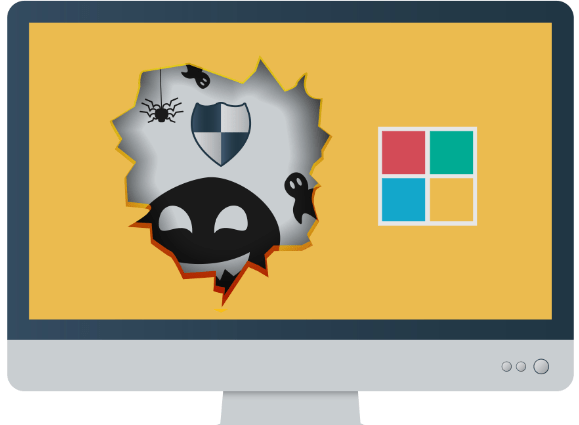Spotify boasts almost 700 million active users, including 265 million premium subscribers. As the world’s leading music streaming service, it’s hardly surprising that it also attracts all manner of bad actors who are eager to exploit its users.
Spotify accounts represent valuable digital assets that can be monetized through multiple channels, including on the dark web and the shadowy corners of Telegram. While discounted compared to legitimate subscription costs, the going prices of hacked Spotify accounts often generate substantial profits when sold in bulk. A single successful phishing campaign targeting Spotify users can yield large numbers of accounts, which translates into considerable illegal revenue.
Compromised accounts provide valuable personal data that can be used for identity theft or social engineering attacks. Access to a Spotify account may reveal personal information, payment details, listening habits, and connections to social media and other online services, which creates opportunities for additional targeted attacks.
Additionally, hacked accounts serve as vehicles for artificially inflating stream counts. This practice, known as “streaming fraud”, involves using networks of compromised accounts to repeatedly play specific tracks, generating fraudulent royalty payments. According to Beatdapp, a streaming fraud detection platform, at least 10% of all song streams are fraudulent, taking up to US$3 billion out of the global music industry each year.
Now, understanding how Spotify accounts can be hacked is the first step towards staying safe. Let’s review the main tactics used by cybercriminals to obtain user credentials, the red flags to watch out for, and how to tell that your account may have been compromised.
Phishing
Phishing emails are a staple tactic, although many of these schemes have evolved significantly beyond obvious scam emails replete with spelling errors and other giveaways. Many of today’s phishing campaigns rely on advanced social engineering techniques and convincing visual elements that can fool even plenty of cautious users.
Generally speaking, however, phishing ploys often begin with an email about supposedly serious issues with your account, such as “Payment Method Declined: Subscription Will Be Canceled.” These messages create a sense of urgency and often cloud judgment and increase the likelihood of hasty actions, especially if they’re complete with official Spotify logos and formatting nearly identical to legitimate Spotify communications.
For example, a phishing email might claim that your account will be deactivated due to a payment issue. It will then prompt you to click on a link to “resolve” the problem. Instead, you’ll end up on an imposter site that is designed to steal your login credentials and possibly other sensitive information.
Phishing links generally direct users to imposter websites that often mirror Spotify’s login page and even their domain names appear legitimate, at first glance anyway.
These simple tips will go a long way towards keeping you safe:
- Be skeptical of requests for your personal information – Spotify will never ask for your personal information, such as payment methods or your password, nor will it ask you to pay through third parties or download email attachments.
- Verify the email sender’s address carefully – legitimate Spotify emails come from domains ending with “@spotify.com”
- Check for spelling and grammar errors or other signs that something isn’t right: legitimate emails usually don’t contain these kinds of mistakes.
- Hover over any link without clicking to view the actual destination URL.
- Manually navigate to Spotify by typing the address in your browser rather than clicking email links.
- Protect your account with a strong and unique password, stored in a password manager, and enable two-factor authentication on it, preferably via an authenticator app or a hardware security key.
Fake apps
The allure of enhanced features and free premium access has led to a proliferation of unauthorized Spotify third-party apps. These unofficial apps range from seemingly innocent feature-enhancers to deliberately malicious software designed to harvest credentials.
Using juicy lures, such as blocking ads and otherwise enhancing the free Spotify experience, these apps seek to take over the account.

To protect yourself, stick to official app stores and only download the Spotify app from official channels: the Apple App Store for iOS devices, Google Play Store for Android devices, and spotify.com for desktop clients.
Steer clear of any third-party tools that promise to enhance Spotify or provide premium features without payment, as these are almost universally malicious. Additionally, regularly review the applications installed on your devices and remove any that you don’t recognize or no longer use.
Malware
The malware landscape targeting streaming service credentials has grown increasingly sophisticated. Beyond basic keyloggers, cybercriminals can now deploy malware specifically designed to target entertainment service credentials, for example while masquerading as browser extensions promising to enhance streaming experiences or to allow downloading content for offline use. Information-stealing malware is also often distributed through compromised software downloads or malicious email attachments.
Keep all software updated, as updates often include security patches for known vulnerabilities. Use a reputable security solution with real-time protection capabilities. Exercise caution when granting permissions to applications, especially those requesting access to sensitive functions like accessibility services or password managers.
Data leaks
Data breaches often lead to account takeovers partly because of people’s penchant for reusing passwords across different services. Given how interconnected our digital lives are, a data breach in one service can lead to account compromises across multiple platforms. There have been cases where credentials exposed in major data breaches or leaks were successfully used in credential-stuffing attacks on thousands of Spotify accounts.
To stay safe, implement a password management strategy that eliminates password reuse. Reputable password managers generate unique, complex passwords for each service and securely store them, requiring you to remember only a single master password. Additionally, regularly monitor breach notification services like HaveIBeenPwned, which will alert you if your email appears in new data breaches, allowing you to take immediate action before it’s too late.
How can I tell if my Spotify account has been hacked?
The most obvious sign is unexpected changes to your account settings or subscription details. This might include unauthorized upgrades or downgrades to your subscription plan, changes to your email address, or modifications to your payment info.
Unusual activity in your listening history or playlists may also indicate account compromise. This might manifest as unfamiliar artists appearing in your recently played tracks. In other cases, you might encounter unexplained disappearance of playlists you’ve created or new playlists appearing that you didn’t create.
Much the same goes for session anomalies, which, too, can also reveal unauthorized access. Spotify’s account page shows all devices where your account is currently active. Unfamiliar devices or locations in this list strongly suggest your account has been compromised. Similarly, if you frequently find yourself unexpectedly logged out of Spotify, this may indicate someone else is accessing your account and triggering session limits.
If you notice any of these red flags, check out this Spotify page and take immediate action:
- First, log out of all devices through your account settings page.
- Then change your password immediately, ensuring the new password is strong and unique.
- Next, review and revoke access for any third-party applications you don’t recognize or no longer use.
- Finally, contact Spotify customer support to report the unauthorized access and request additional account security measures.
Staying safe
Make sure your digital kingdom is locked down. The few minutes spent securing your account today could save you hours of frustration tomorrow. Indeed, once you’re armed with knowledge of attacker tactics and the protection strategies, you can slam the door on would-be account thieves.
But also remember that security isn’t a set-it-and-forget-it feature. It’s a living practice that evolves as quickly as the threats themselves. Stay on top of the latest dangers lurking in the online space.










